
Michaela Koonce, 3, left, Gyeoni Taylor, 4, Michael Hamilton, 4, and Montana Dunlap, 4, play outside before dinnertime at Angels of Essence Child Care Centre in Detroit on Friday, Oct. 21, 2022. Sarahbeth Maney, Detroit Free Press
Every year that Betty Henderson keeps Angels of Essence child care center open, she wonders whether it will be the last. The last year taking constant calls from parents, begging for a spot for their child. The last year of checking and rechecking her bank account after the heating bill is paid and opening her own refrigerator door to bare shelves after buying meals for the kids.
But as one of the few 24-hour child care centers in a city of shift workers and factory floors, Henderson knows closing her doors to these children could mean cutting off their access to stable care and their parents’ opportunity to work.
One in five American employees works nonstandard hours, including evening, nighttime or floating shifts. They are the workers who kept our economy doggie-paddling along during the pandemic when everything seemed to be sinking, stocking shelves at grocery stores, caring for residents in assisted living facilities, unloading trucks at Sam’s Club. They are the nurses and rehab workers — the ones the country labeled “heroes” in the early days of spring 2020.
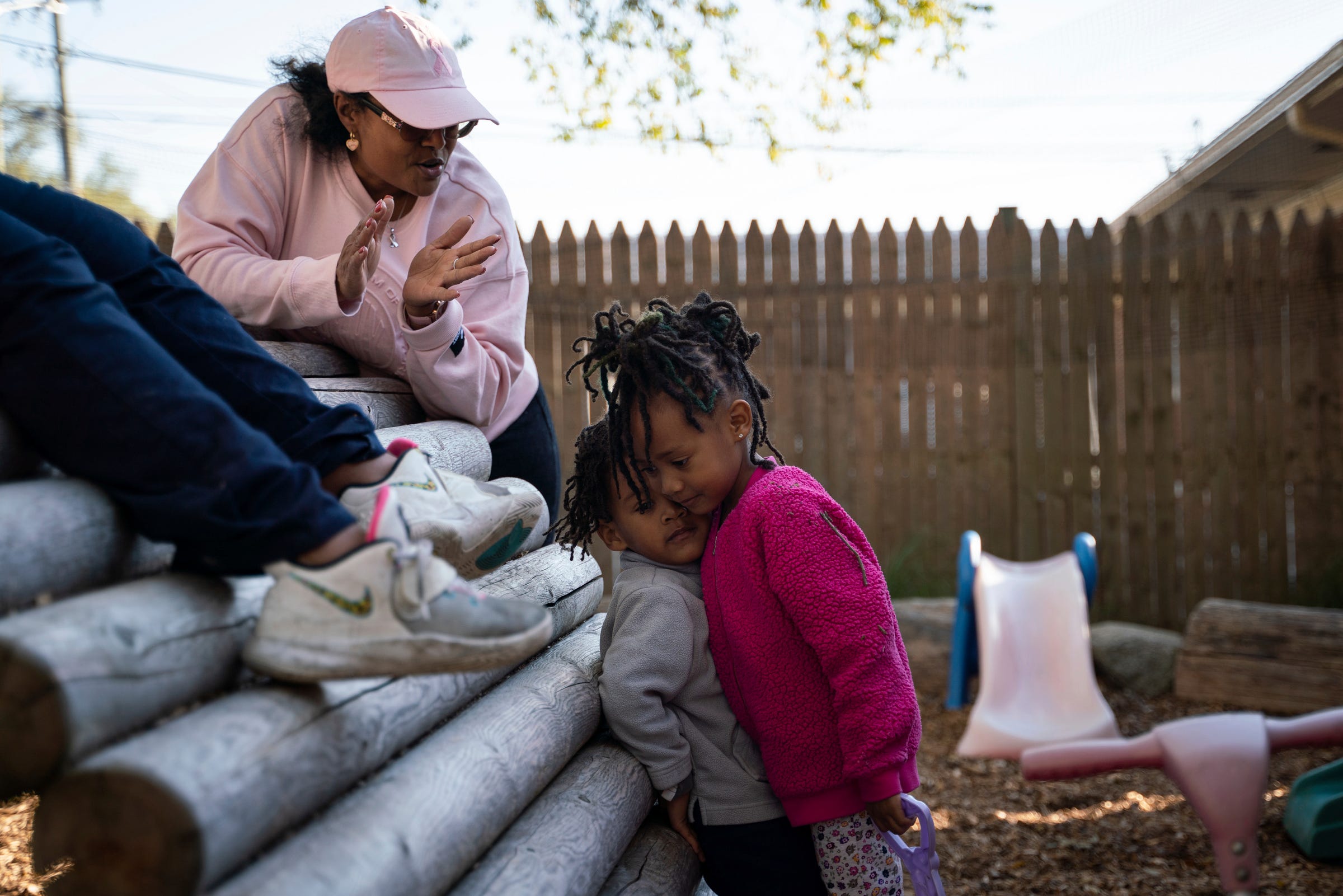
Many of them are also parents. About 43% of children in the U.S. — 31 million of them — have at least one parent who works outside the traditional daytime schedule.
Only about 14% of Michigan’s child care providers offer care after 6 p.m., and just 6% provide care overnight.
Henderson knows that the need for such care is great and the supply small. So, she stays open despite the escalating operating costs and grueling hours. She trains new staff and buys boxes of baby wipes and greets each child as they walk through the door with their My Little Pony backpacks and Spiderman sweatshirts to hang on a hook.
“It’s not the life I wanted, to have a day care,” said Henderson. “But I hear these parents’ stories and at the end of the phone call it’s always one word: OK.”
More:Michigan’s child care crisis is much worse than policymakers have estimated
More:Long waitlists, low pay vex Michigan child care providers
'Tell them help is on the way'
The days are long when they never end. At a 24-hour child care center like Angels of Essence, activity starts before dawn as children arrive whose parents work the earliest shifts. Older children get shuttled to neighborhood schools before the bells ring while their little siblings stay to play and sing, work on crafts, take naps and run around the backyard pocket playground. By the late afternoon, when most office employees are grabbing a soda or a stretch as their workday winds down, a whole new crop of kids is arriving at Angels of Essence for the evening.
Three-year-old Dallas Tinnon walks in quietly about 3:30 p.m. and waits to start the craft project her teachers have prepared: paper cupcakes to decorate with glitter sprinkles and glue. Older kids find puzzles to work on and watch a movie on a mounted screen.
“You’re above my weight limit,” Henderson says as she heaves a little girl off the floor and into her arms, ignoring the pain in the knee she injured in a forklift accident when she worked at Chrysler. The toddler is accustomed to a 5 p.m. pickup, but her grandmother’s schedule changed, and she can’t come until 7. The girl is cranky, confused and sad that her friends have gone home. Henderson holds her and sways gently for 15 minutes, patting the girl’s back as she explains check-in procedures to a new hire.
The phone on Henderson’s desk rings several times an hour: parents giving schedule updates, asking about possessions left behind, alerting staff to illness and absence. And the parents who need a place for their children to go. They don’t know what to do, they don’t know if they can take the second- or third-shift job they’ve been offered. Is there a spot for their child?

In 2018, 16% of workers usually worked a non-daytime schedule and nearly one-fifth of all workers learned their schedule less than one week in advance, according to the U.S. Bureau for Labor Statistics. But the pandemic’s effect on supply chains and staffing sent demand for evening and nighttime hours soaring. In 2021, the number of listings for night-shift jobs on ZipRecruiter was up to 14 times pre-pandemic baselines.
A mother who just got hired for a job at Stellantis calls Angels of Essence, trying to find care for her three kids. Stellantis wants her from 4 p.m.-4 a.m. for some weeks, and then her schedule will flip. “I can’t find anyone to watch them, and I start next week,” she tells Henderson on the phone. “What am I supposed to tell Chrysler?”
“Tell them help is on the way,” Henderson says.
A lifeline to work and stability
Twenty-two years ago, when Henderson needed child care for her third son, who was born with a heart defect, the day care she contacted told her she’d need to pay $450 a week. When she mentioned he had a pacemaker and a feeding tube, they jacked the quote up to $600.
Henderson was working repossessing cars — a job she loved and says she was good at. But no matter how much she hustled and pushed herself, Henderson knew she could never scrape together $600 each week. She went to the library to research careers that allowed people to stay home with kids. Makeup sales or babysitting, the book advised. Henderson uses a little Vaseline on her face. She decided to open a day care in her house.
Henderson put up five flyers around her neighborhood at Finkel and Wyoming. She never advertised again.
In one year, Angels of Essence went from being licensed for six children to 20 and extended its hours to 24 hours a day.
It speaks to unmet need for many families in cities like Detroit. “Affordable quality care that meets their needs is really difficult to find, and then you have nonstandard hours, it’s just a larger burden that families are faced with,” said Wendy Wagner Robeson, director of the Work, Families, & Children Research Group at the Wellesley Centers for Women.
More:Michigan aims to boost child care supply by helping entrepreneurs cut red tape
More:What we learned about Michigan’s child care crisis from parents and providers
'They don't have a choice'
Wagner Robeson points to research that found mothers in low-income families were more likely to work nonstandard schedules than those in middle- and high-income families.
“They don't have a choice,” Wagner Robeson said. “If you have kids, maybe you want to work when they’re at school. But you know what? You don’t find jobs that start at 9:30 and go to 2:30. And I don't know if the five-hour day would be enough to keep your family going.”
Lower-income children are disproportionately underenrolled in child care centers, and nonstandard schedules are a reason, alongside high prices and limited openings. When families can’t find or can’t afford child care centers that are open when they need coverage, they’re forced to turn to options that can sometimes be less reliable and less regulated.
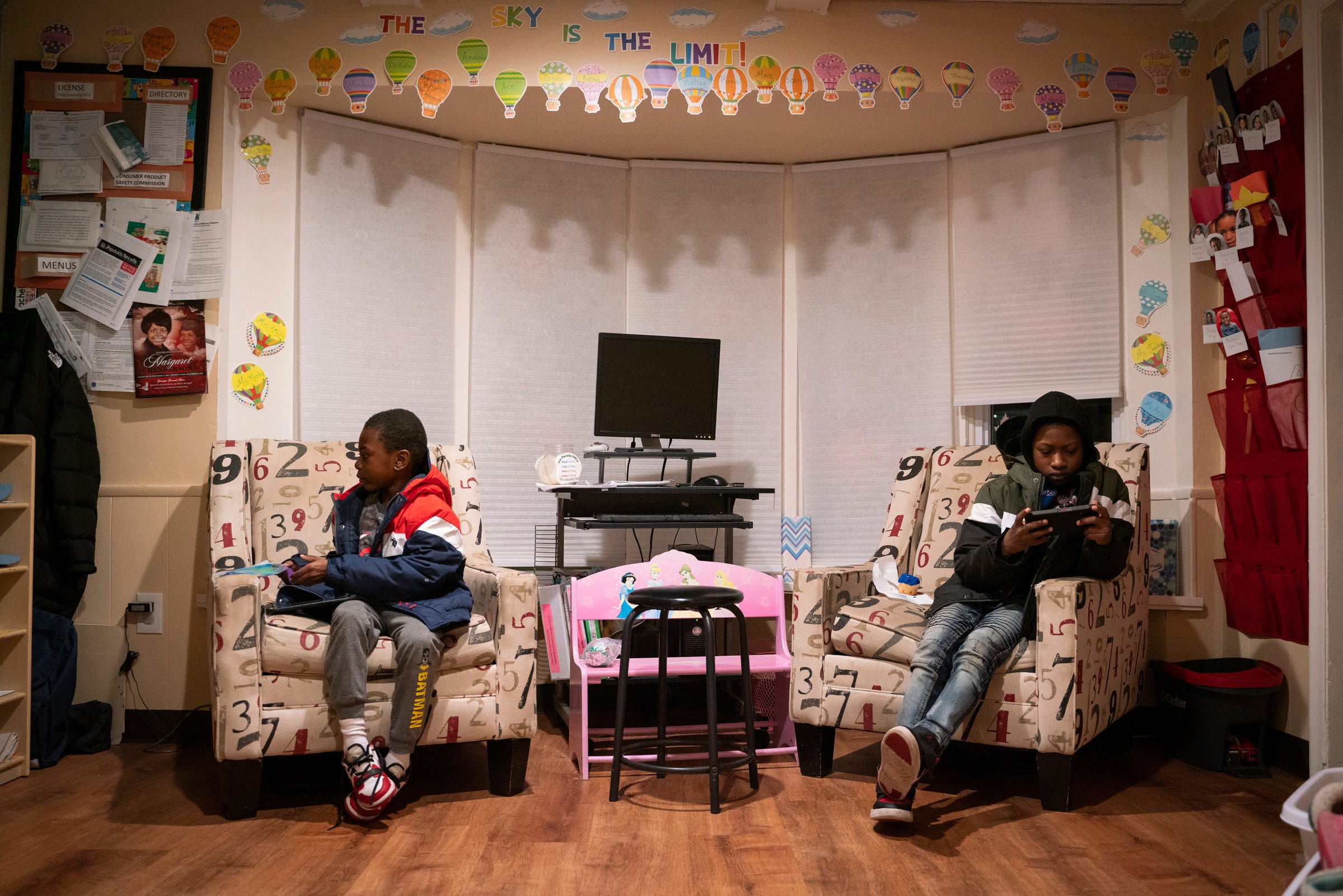
“Families who are seeking nontraditional-hour care are really faced with hard choices,” said Tiffany Ferrette, a senior policy analyst focusing on child care and early education at the Center for Law and Social Policy. Black and Hispanic mothers are less able to juggle care with a partner, take a break from employment, work from home or outsource child care, according to the Brookings Institution. “The pandemic, not surprisingly, exacerbated this need across communities,” Ferrette said.
For many families, not having access to quality, affordable child care means piecing together a patchwork of care for their kids: relatives, neighbors, babysitters, or home-based centers that may or may not be licensed.
For families like these, having a round-the-clock child care center is a lifeline. To work, to stability, and to a little peace of mind.
Dinnertime and bedtime
The kids at Angels of Essence are sitting down to halves of hamburgers, with fries and boiled peas and carrots on the side. It’s 6 o’clock, and soon it will be time to play tag and Simon Says and make up dance moves outside on the mulched playground.
When all the kids are outside, the center is quiet save the rattling hum of the AC and the intermittent rev of a passing car. But the stillness is short-lived. The kids come in and staff help them dump the wood chips out of their shoes and socks and pants. Cots go out, fresh diapers go on.
“Nighty-night!” teacher Arionne Brock says in a goofy voice as she visits each child’s cot, tossing the quilt over each one’s legs. They giggle and kick their covers off, imploring her with grinning faces to do it again.
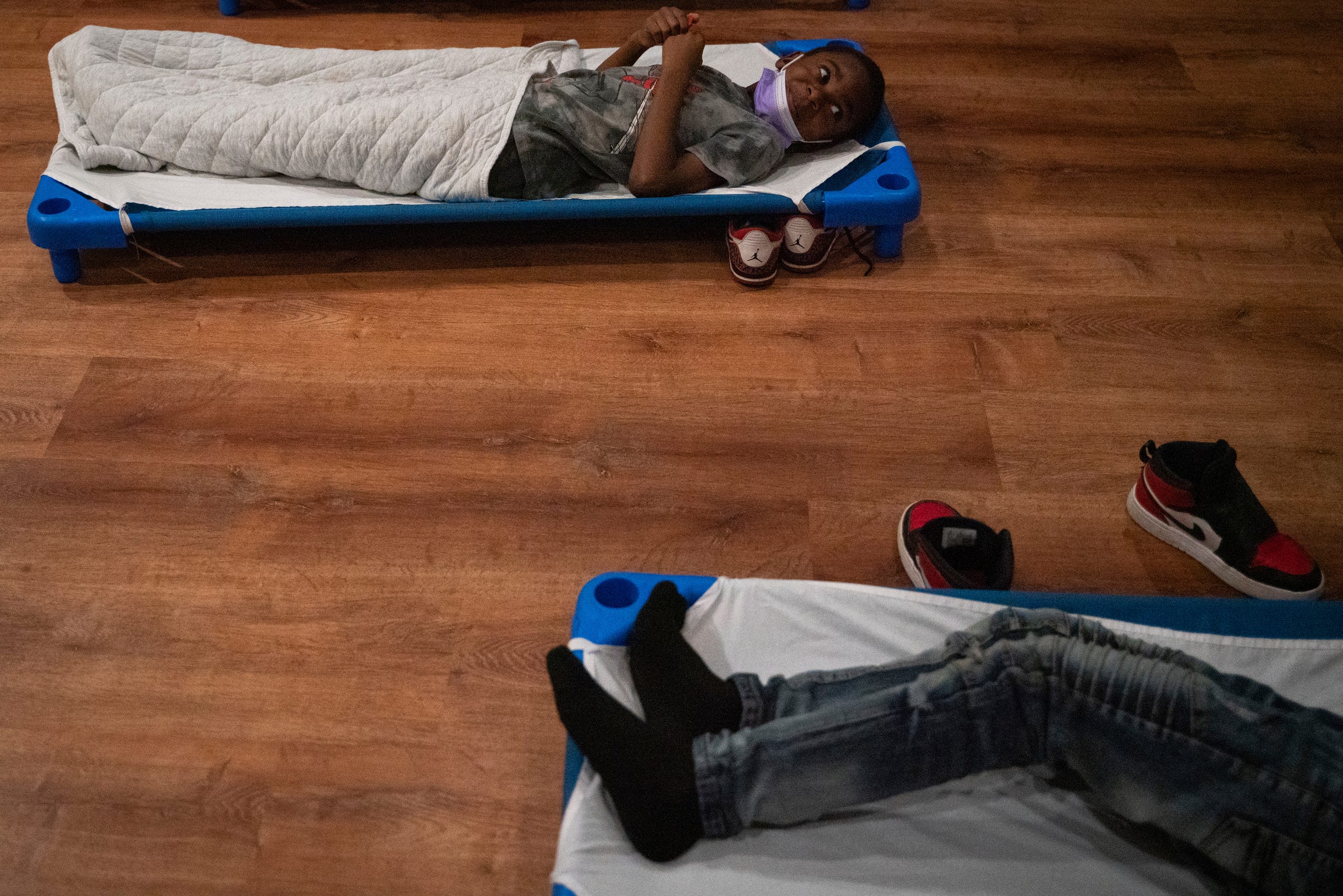
A smiley preschooler with pierced ears and a sweet, high-pitched voice keeps sitting up. “Go to sleep, DeAndre,” Brock urges DeAndre Terry.
The sound of light rain fuzzes from a noise machine. Tinnon is asleep within minutes, her arms folded under her chin. The littlest child, Azura Rose, is in a rolling crib. She drifts off too.
'Without her, it would be me being jobless again'
Rose’s mother, Cheyenne Hurley, is walking distance away, working at the seafood counter of a Kroger. She says if she didn’t have access to a 24-hour center, she probably wouldn’t work at all. Hurley can’t rely on family because they all have jobs. She says everyone wants the earlier shifts at work, but she takes what she can get.
“It would be wonderful if I could work a morning shift, come home and help my daughter with her schoolwork and do fun activities,” Hurley said. Instead, Hurley brings Rose and her older sister Scarlett home around 11 p.m., finds something for them to eat and tries to coax them back to sleep. She feels lucky to have Angels of Essence.
“Without Mrs. Betty's day care service, I wouldn't know what I would be able to do,” Hurley said. “Without her, it would be me being jobless again, me not being able to provide certain things, or me trying to work overnight with help.”
Tinnon’s mother, Delicia Lewis, is in the same boat. She says she has no idea what she’d do if not for Angels of Essence.
Lewis has worked in a pharmacy that needed her to stay until 7 p.m. and a warehouse where her shift went until 12:30 or 2 a.m. “I’ve had to quit jobs, leave jobs, put it on hold, yeah. Because my work would go over the day care hours. I would have to stay until 7 or 9 and they close at 5 or 6 o’clock so there was no way I could close my shift,” she said.
“I have honestly quit so many jobs because they weren't able to work on my schedule,” she said.
An industry in crisis
Having a 24-hour center has given Lewis and Hurley stability. But the child care center they rely on is part of an extremely fragile industry.
“Quality, affordability, accessibility, those are problems, and the pandemic brought them to the forefront of people's minds,” said Wagner Robeson. “And now, people think it’s all over and we can go back to our lives before, but no. Child care was left behind and families are still suffering because of this.”
Sizable dips in the number of employees willing to work in child care — especially as the pandemic closed centers and took away any sense of job security or physical safety — have left centers scrambling to keep their doors open.
COVID-19 only exacerbated long-standing breakdowns in the child care industry: Parents in at least 52 Michigan counties pay more than 30% of the median income, and an investigation by Muckrock and a consortium of newsrooms including the Detroit Free Press found that 44% of Michigan families live in child care deserts and struggle to access center-based care at all.
Meanwhile, early childhood educators take home wages that wouldn’t tempt a fast-food employee to leave her post. As of 2019, the median wage for a child care worker in Michigan was $11.13 an hour. Nearly one in five early educators lived below the poverty line.
Owners fare no better. “The typical profit margin for a child care business is 1%,” said Rasheed Malik, the senior director of Early Childhood Policy at The Center for American Progress. “Plenty of them don't even make that.”
More:Child care crisis in Michigan
More:Growing number of grandparents face crushing costs as they raise kids
The pandemic brought extreme hardship to places like Angels of Essence. Henderson had to close for days and weeks at a time, while the ever-changing rules for testing and quarantining caused chaos and frustration. For months, Henderson worked from 5 in the morning to 3 in the afternoon and came back for a second shift from 10 p.m. to 4 a.m., only sleeping a couple of hours here and there. Her mother, for whom Henderson had also been caring, died of COVID-19.
Still, the pandemic offered the tiniest of silver linings. Michigan bumped up the rate it pays for children eligible for subsidized child care, which includes 80% of the kids at Henderson's center. That rate depends on factors such as children's ages to the type of licensed program, but for Henderson, it meant the kids who were bringing her $4.24 an hour were now bringing in $7. Prior to COVID, Michigan's child care subsidies were among the lowest in the country.
Gov. Gretchen Whitmer put forward a plan to use $1.4 billion in federal money to expand affordable child care. Angels of Essence received its sliver of the $700 million earmarked as “stabilization grants” to help child care centers keep their doors open. Henderson was able to pay her staff bonuses and stay open even though the number of kids who stayed overnight slowly dropped from 17 to zero. In a normal year, Angels of Essence Day care operates at a loss, but the relief money brought it up to breaking even.
COVID increases kept day cares afloat; how long will the new rates last?
But that COVID relief money wasn't without strings: Henderson had to pay thousands of dollars in taxes on it. And it isn't guaranteed to last. The higher subsidy rate is currently set to drop back down at the end of September 2023.
“It shouldn’t take COVID for us to get an increase and then take it away,” Henderson said. “I’ve never felt more undervalued, more underappreciated.”
Henderson isn’t sure what she’ll do. She can’t continue to run a business that isn’t profitable. At 51 years old, she just opened her first 401(k) account, and puts in $25 a month. At that rate, she’s afraid she’ll end up a burden to the children she toiled to put through college.
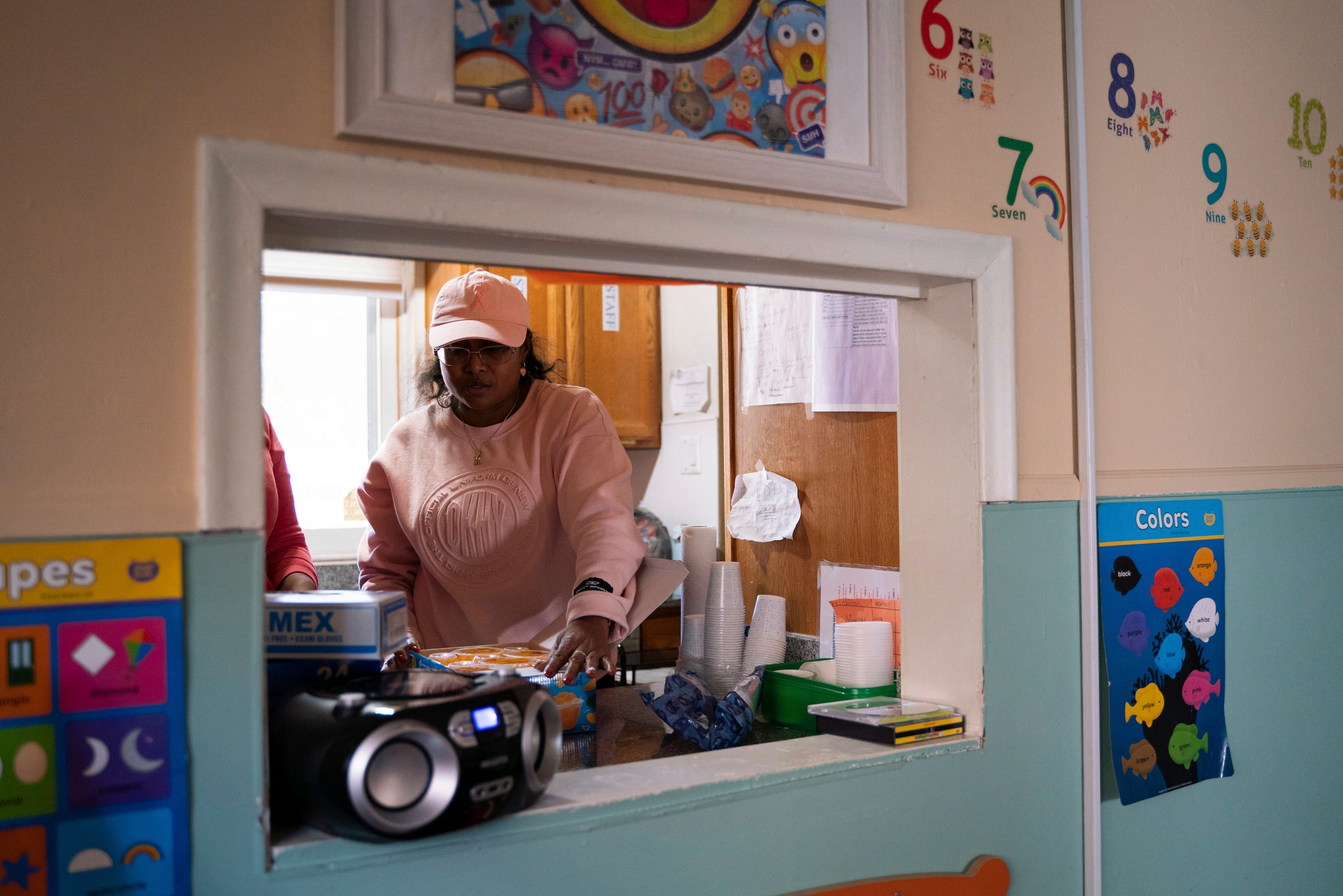
She can’t ask the parents to pay more. She knows they just don’t have it. She knows her employees have needs, so she doesn’t want to reduce their hours. Should she pay rent for the day care building at the expense of her own mortgage, or the other way around?
“You don’t know how many times we providers call each other crying,” Henderson said. “If things change, I want to stay doing what I’m doing. But if things stay the same, I think I’ll be forced to leave.”
A problem for families to solve alone
Most experts agree that to fix child care, we’d all need to start thinking about it differently. Instead of pressing the care of our children into a private model, many say the country would need to treat child care as a public good.
“Just as we put money from our local state or federal government into schools for K through 12, the same thing has got to be done for child care,” said Wagner Robeson. Early childhood educators would need their pay to be commensurate to their education and experience, and know they have a career trajectory they can depend on.
“There needs to be a large-scale sustainable investment in child care,” said Ferrette, “and this should include valuing workers” with higher wages, better benefits, and career stability.
Michigan announced the Caring for MI Future initiative in May — a $100 million strategy to open 1,000 new child care providers by the end of 2024. It’s unclear whether any of these funds will be targeted toward increasing nonstandard hour care.
Employers themselves could also choose to invest in non-traditional-hour care for its workers. Erica Brewster, head of talent acquisition with Stellantis, says job candidates have increasingly brought up child care challenges during the past year. Brewster said having a 24-hour child care center would allow more employees to work overtime, take on the shifts that meet their needs, advance in their careers and worry less about emergencies. But, she said, “I know that’s probably a big task.”
More:Michigan is desperately trying to make private child care more affordable
More:Growing number of grandparents face crushing costs as they raise kids
“There's really not a whole lot that seems to be being done to build the supply of nontraditional care,” said Malik. “We still have a mindset, unfortunately, amongst too many people in this country that it’s an individual problem that families need to solve on their own.”
It’s nearly 9 p.m. and 2½-year-old Dior Martin’s dad shows up at Angels of Essence to take her home. Teacher Shylah Ashley sticks Dior’s shoes onto her little feet while she’s still asleep, then scoops her up from her cot and sits her in the chair by the front door. Her eyes stay closed, her plump belly peeking out from under her pushed-up shirt. Her sisters pad sleepily out the door. Ashley tells DeAndre to go to sleep.
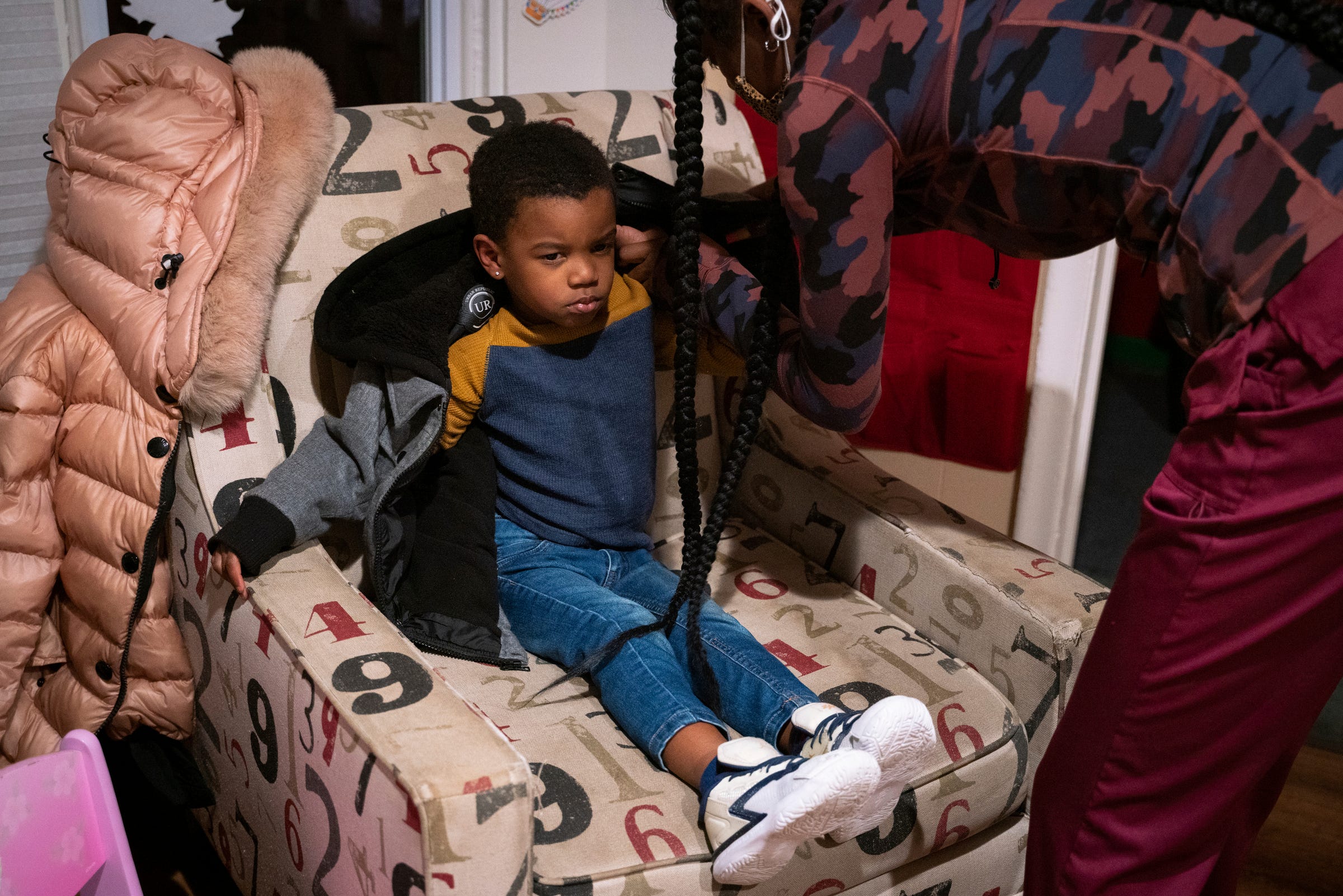
At 9:30, DeAndre is still awake, lolling on his cot. Another staff member scrapes leftover peas and carrots into the trash and offers the remaining hamburgers to Ashley and Brock. They tell DeAndre to go to sleep. He is still tossing on this cot, the room now dark. At 10 p.m. exactly he is finally still.
Two minutes later, DeAndre's mother arrives to take him home. “Wake up, DeAndre,” Brock says, rousing him. “Time to go.” Brock sticks his shoes on his feet and pulls him up and into her arms, carrying him out to his mom with his paper cupcake in her hand. She whisks him into the Detroit night to fall asleep again, somewhere else.
Jennifer Brookland covers child welfare for the Detroit Free Press in partnership with Report for America. Make a tax-deductible contribution to support her work at bit.ly/freepRFA. Reach her at jbrookland@freepress.com.